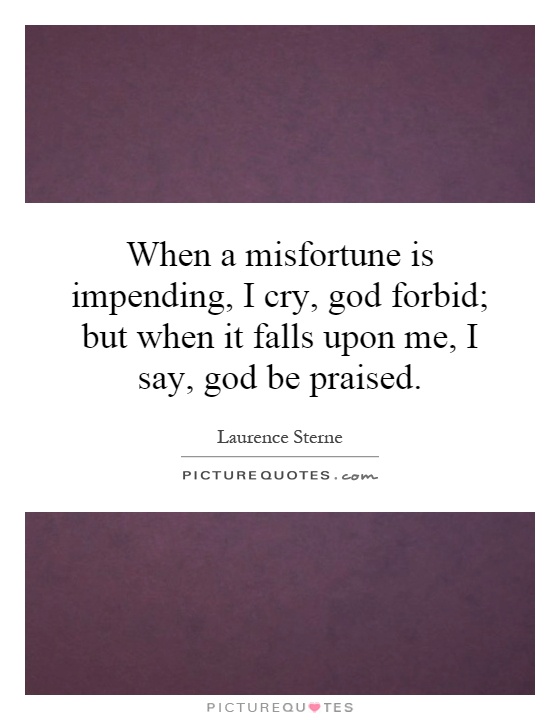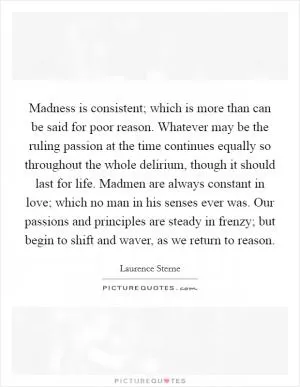When a misfortune is impending, I cry, god forbid; but when it falls upon me, I say, god be praised

When a misfortune is impending, I cry, god forbid; but when it falls upon me, I say, god be praised
Laurence Sterne, the renowned 18th-century novelist and clergyman, is perhaps best known for his groundbreaking work, "The Life and Opinions of Tristram Shandy, Gentleman." In this novel, Sterne explores the complexities of human nature, often delving into the absurdities and contradictions that define our existence. One of the recurring themes in Sterne's work is the idea of fate and the inevitability of misfortune.The quote, "When a misfortune is impending, I cry, god forbid; but when it falls upon me, I say, god be praised," encapsulates Sterne's nuanced understanding of the human experience. On the surface, it may seem contradictory to both fear and embrace misfortune, but Sterne suggests that there is a deeper wisdom at play. In the face of impending disaster, it is natural to cry out for protection and mercy. We hope that some higher power will intervene and spare us from harm. However, when misfortune does strike, Sterne argues that it is a test of our resilience and character. By accepting our fate with grace and gratitude, we demonstrate our strength and fortitude.
Sterne's own life was marked by both triumphs and tragedies. As a clergyman, he grappled with questions of faith and doubt, often finding solace in his writing. His works are filled with humor and wit, but also with a profound sense of compassion and empathy for the human condition. Sterne understood that misfortune is an inevitable part of life, but he also believed that it is through adversity that we grow and learn.












 Friendship Quotes
Friendship Quotes Love Quotes
Love Quotes Life Quotes
Life Quotes Funny Quotes
Funny Quotes Motivational Quotes
Motivational Quotes Inspirational Quotes
Inspirational Quotes